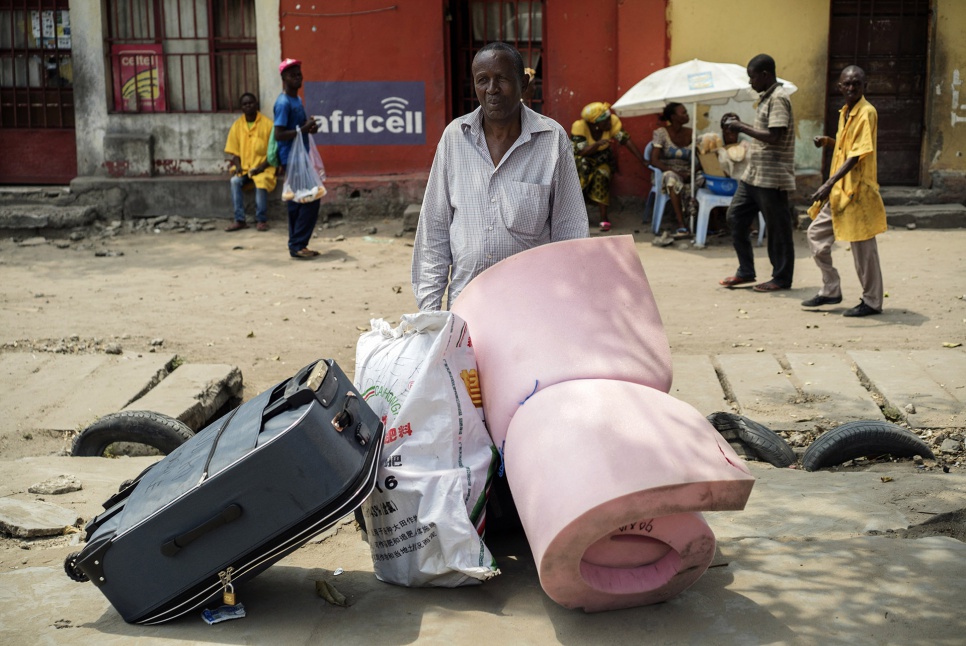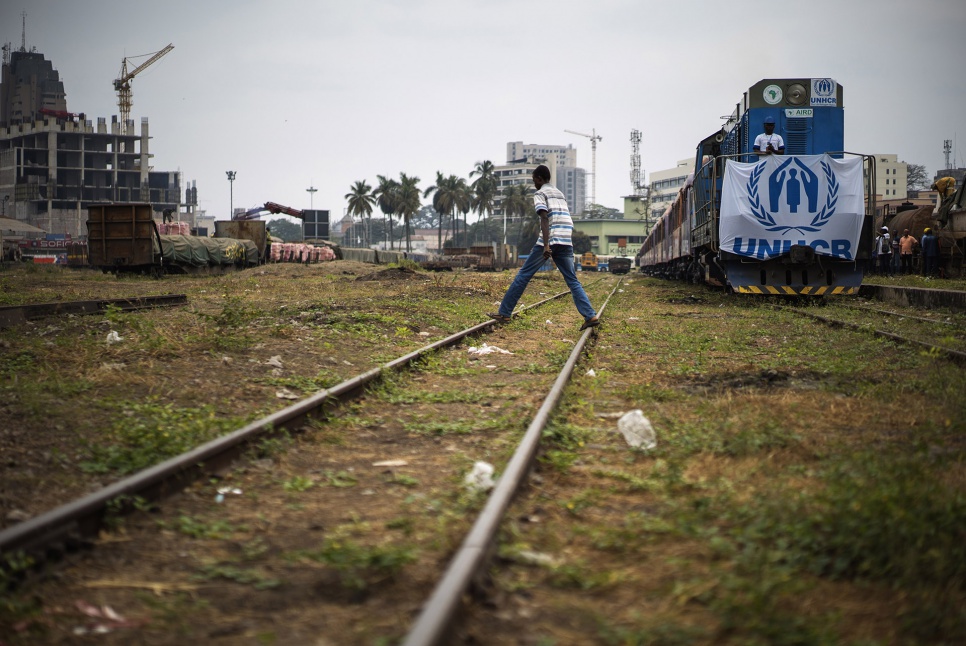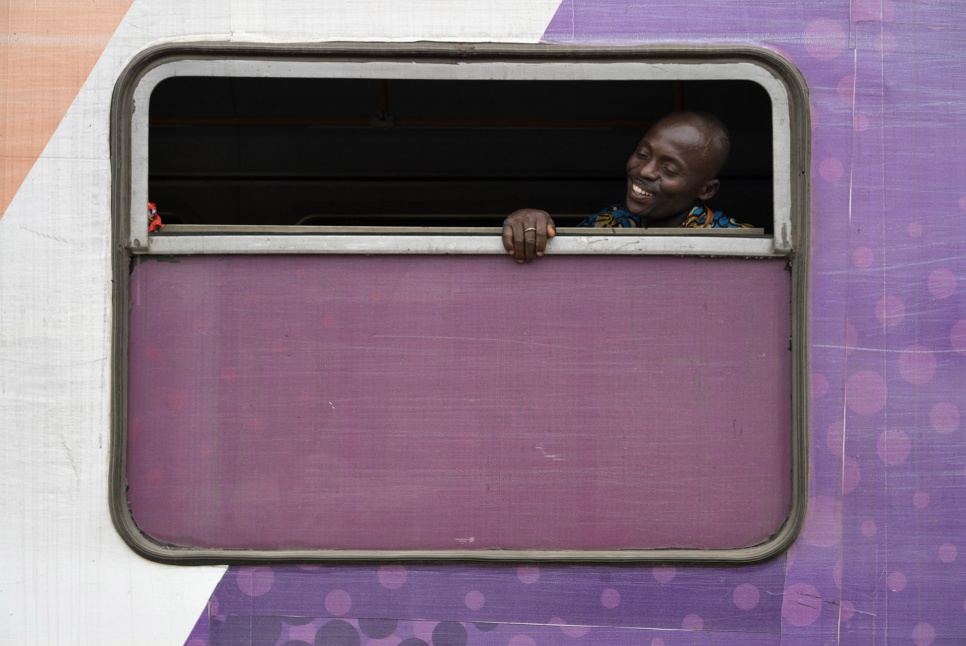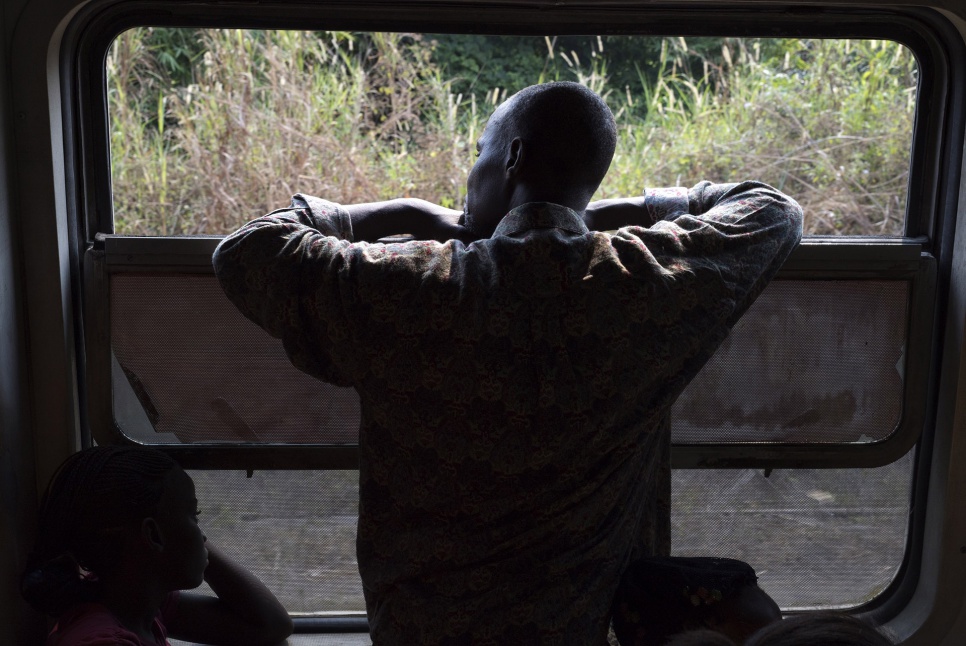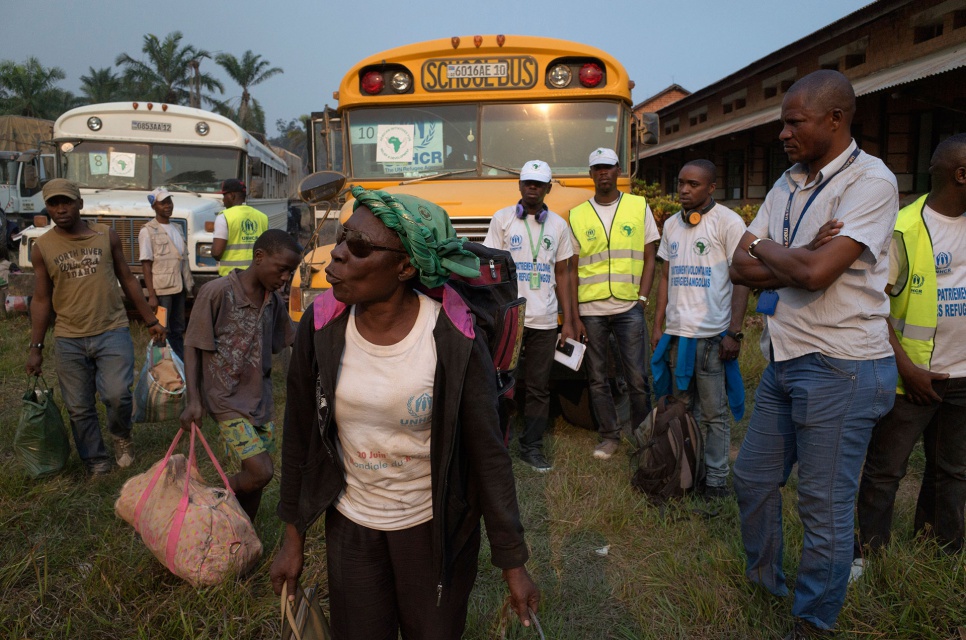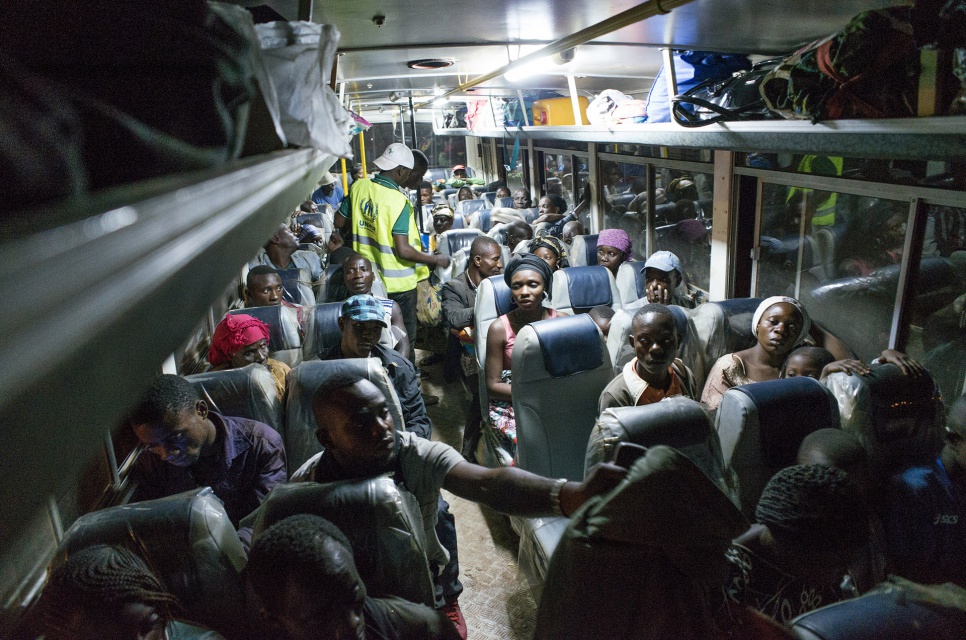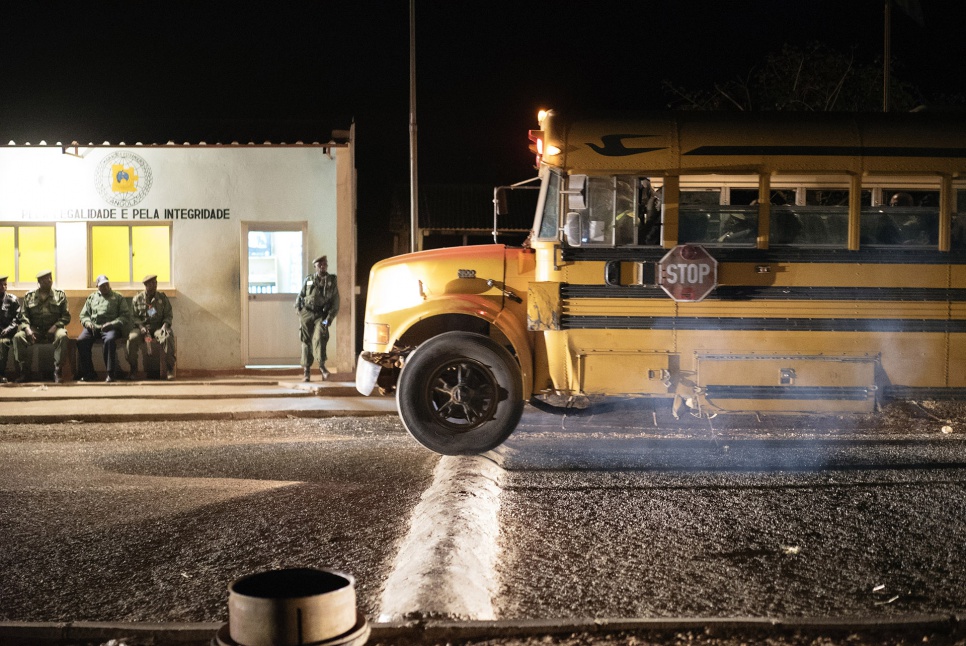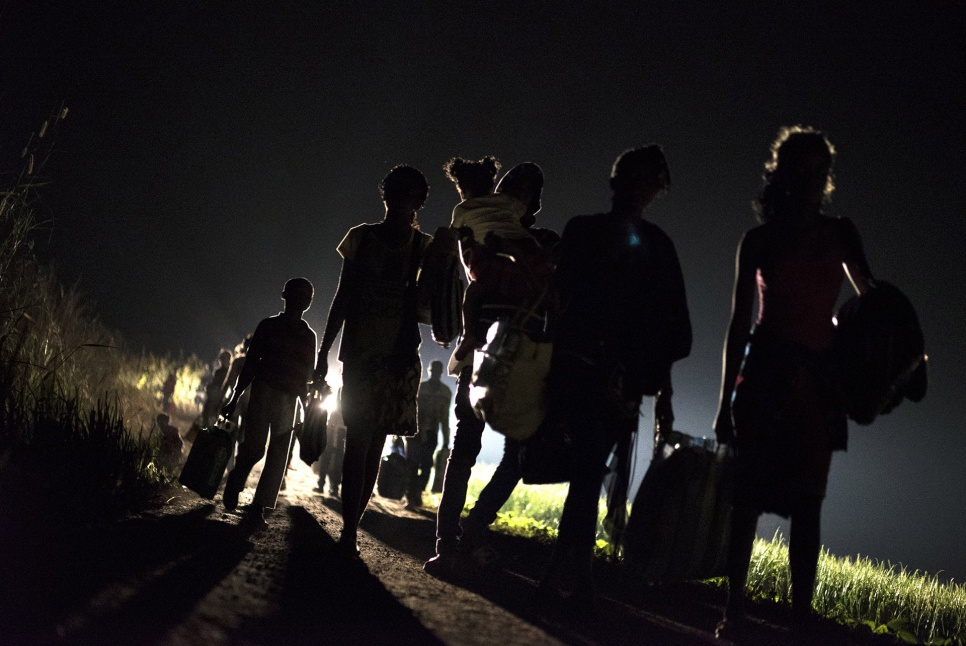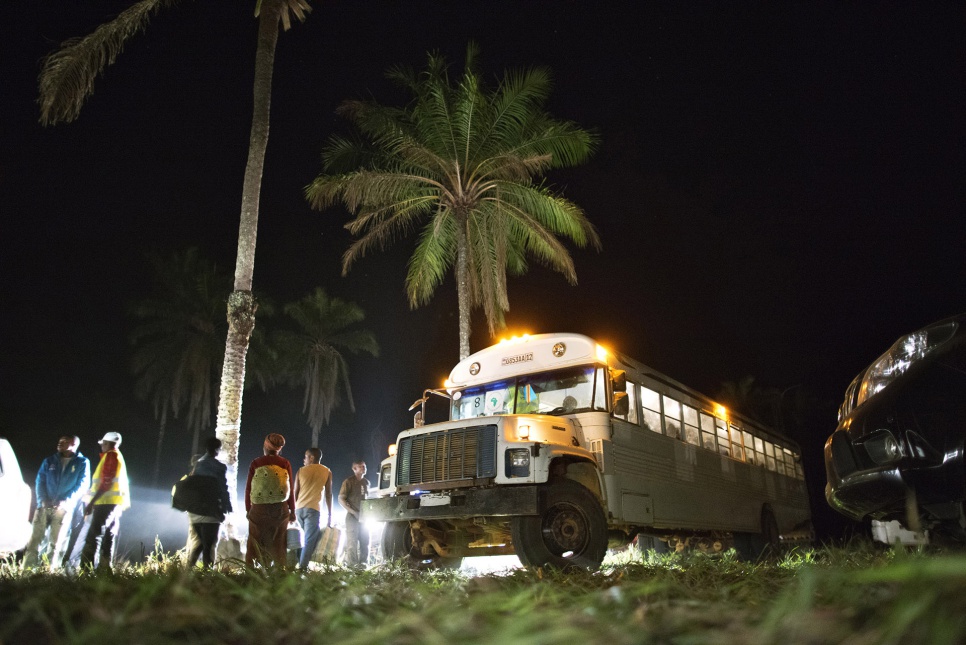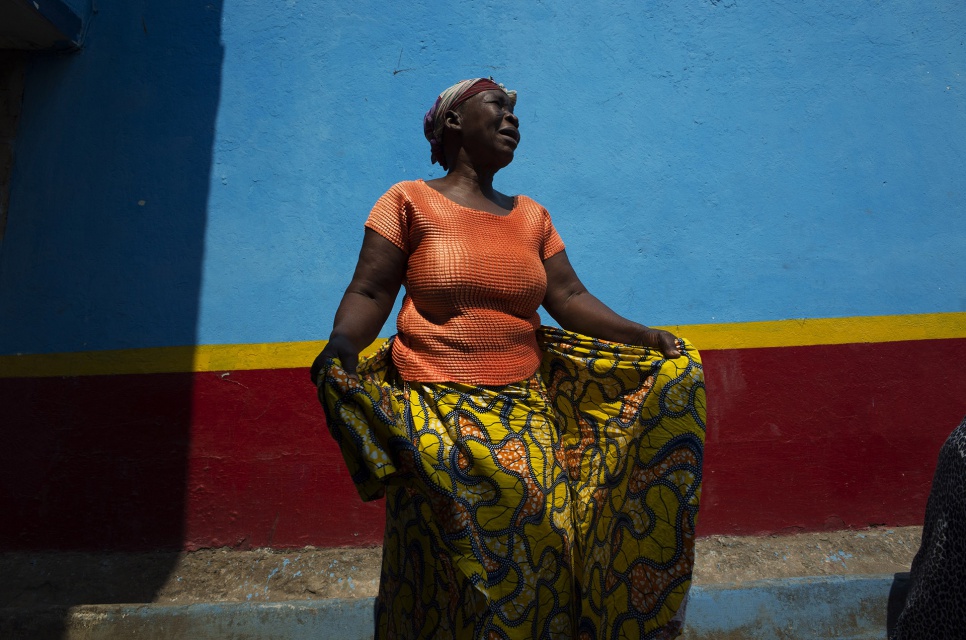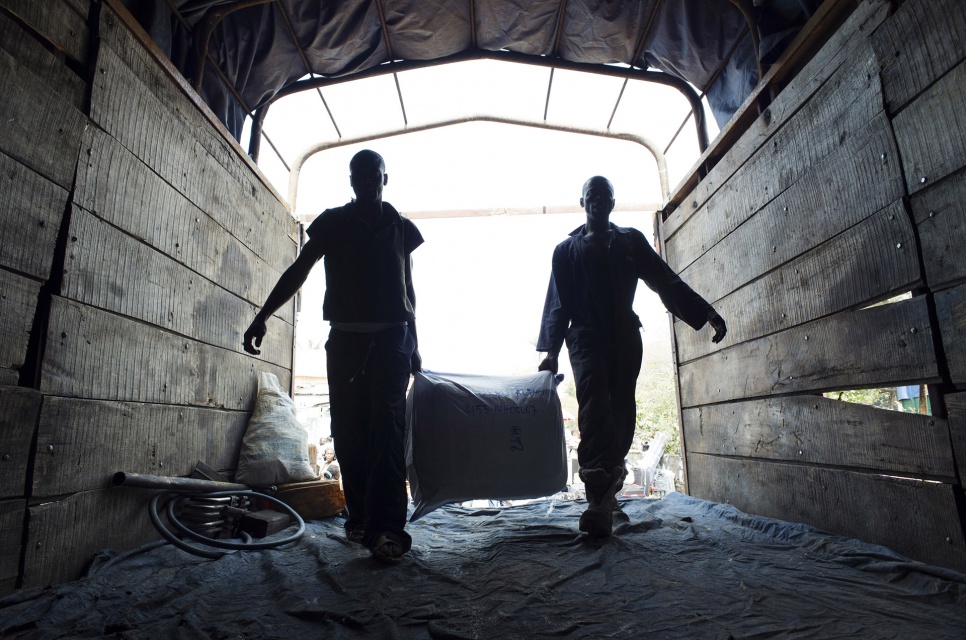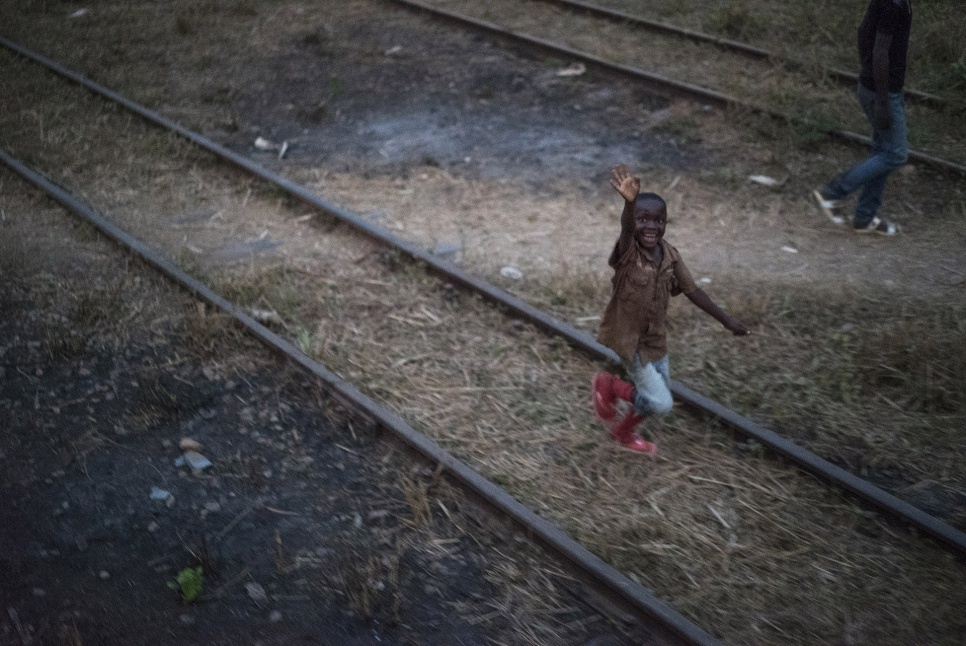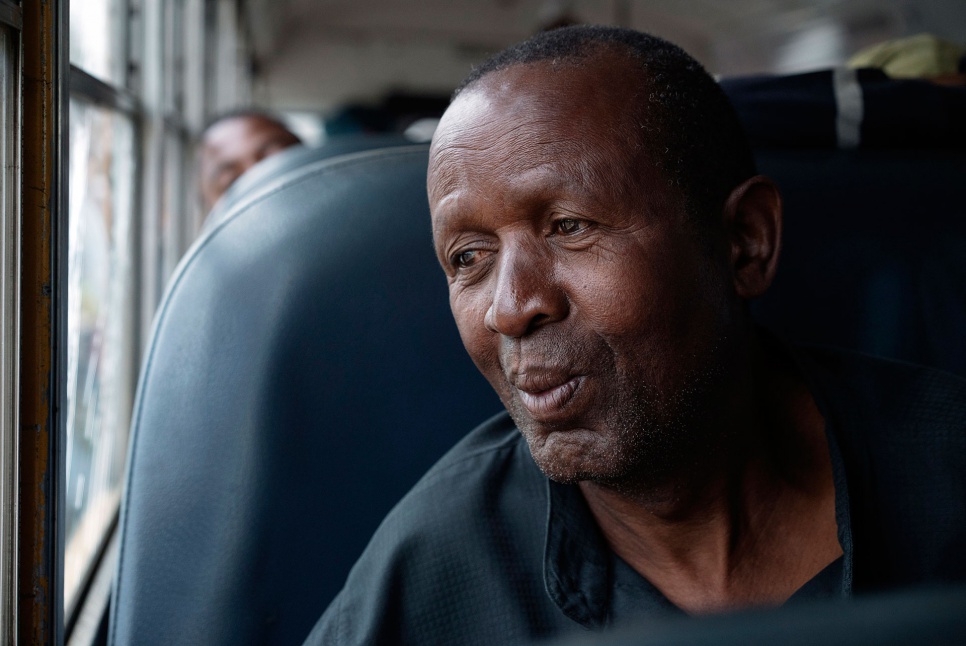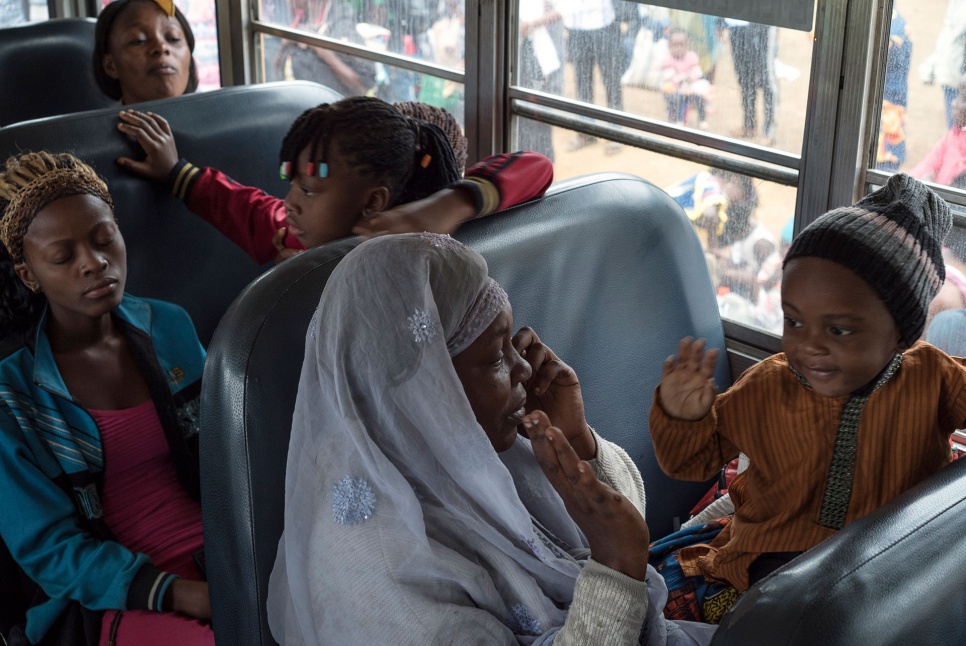The long way home
Exiled for decades in the Democratic Republic of the Congo, tens of thousands of former refugees are finally going home to Angola.
A train carries hundreds of former refugees home to Angola.
© UNHCR/Brian Sokol
Clara smiles as she steps off the bus at the Angolan border. This is her final stop after two days of travel by train and bus through the Democratic Republic of the Congo (DRC). Finally, she is going home.
It has taken Clara 36 years to get this far. Now, at the age of 60, and after decades in exile, she is making the return journey to Angola with a convoy led by UNHCR.
"I want to go back home because no one is feeling better elsewhere than at home," Clara tells me as she waits in line with her papers. "We cannot always be refugees."
Clara still remembers the day she fled Luanda. It was 27 May 1978. "The clashes on that day had cost the life of more than 1,000 people," she recalls. But even if her memories still haunt her, she feels that now is the time to return. "I will go back home, even if there are consequences, but I don't think there will be anything," she says.
I've met Clara while accompanying a group of 500 former refugees who are returning home to Angola with help from UNHCR. Together we travel nearly seven hours by train from Kinshasa to Kimpese, in DRC's Bas-Congo province, where we spend the night in a transit centre. In the morning, a bus takes us another 100 kilometres over bumpy roads. It is already late afternoon when we reach the border, where Angolan immigration officials begin checking everyone's paperwork. Then, at midnight, I watch as they start crossing the border into their homeland.
Some 30,000 former Angolan refugees living in the DRC have opted for voluntary return to Angola, while around 18,000 wish to stay in the DRC. The voluntary repatriation programme will end one of Africa's oldest refugee situations, a result of Angola's 1961-1975 war of independence and the subsequent civil war, which uprooted 550,000 people.
"I have mixed feelings," Clara tells me. "Congo was our second country, our second home."
Like Clara, many of the former Angolan refugees have been living in the DRC for several decades. The decision of whether to return or to stay is often bittersweet.
"I have mixed feelings," Clara tells me. "I don't know if it is joy or sadness. I don't know, but what I know is that I have taken the decision to return. It is joy. My mother and my brothers died [in Angola]. I have to go back to see their graves. It is also sadness. We have friends here [in DRC]. Congo was our second country, our second home."
Theophile, 66, shares similarly mixed feelings. Granted refugee status in the DRC in 1985, he has been waiting for several years to go home. Now, at last, he's hopeful of a safe return, emboldened by the Angolan authorities who are helping returnees to reintegrate.
"I am very happy to go back to Angola," Theophile tells me. "I am also sad to leave behind people with whom I got used to living for many years. There is joy and there is sadness. The faithful in the church where I used to go cried when I told them that I was leaving. I also cried, but on the inside. Returning home to Angola is a project that every refugee has. The only thing that was missing was the right moment. This moment has now come for me. I want to go back because I want to participate in the development of my country."
Others on their way to Angola have never even seen the country before. Their parents fled Angola during the war, before they were born, and now they are keen to see the home of their ancestors.
Elie, a 40-year-old father of two, is among those born in the DRC. His parents fled Angola in 1965. When I ask why he wanted to move to Angola, he says: "It is normal to go home. All my family already returned. All my brothers and sisters returned."
Flore Linda, a 34-year-old mother with a two-year-old son, echoes those sentiments. "I am born in Congo, but I have to go to my country. I want to know my country and live there. It is home. I can't live in Congo forever. I have to go to Angola. My husband already returned and is waiting for us."
Like Clara and Theophile, many of the former Angolan refugees in the DRC have spent decades in exile. Others, like Elie and Flore, have never seen Angola. But virtually all of them have questions about how they will restart their lives there. They hope for support with housing and employment.
For now, it is time to go home.

